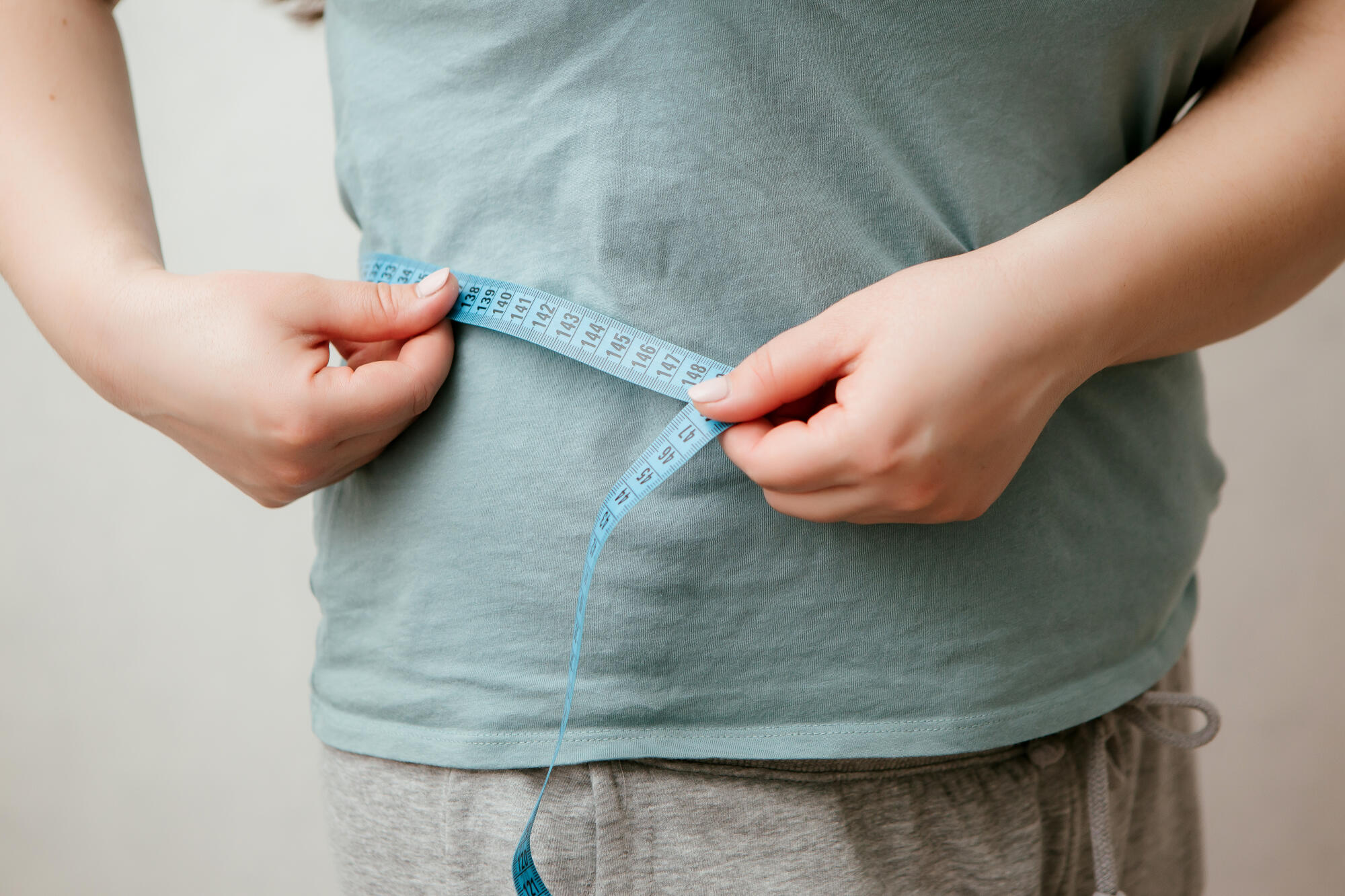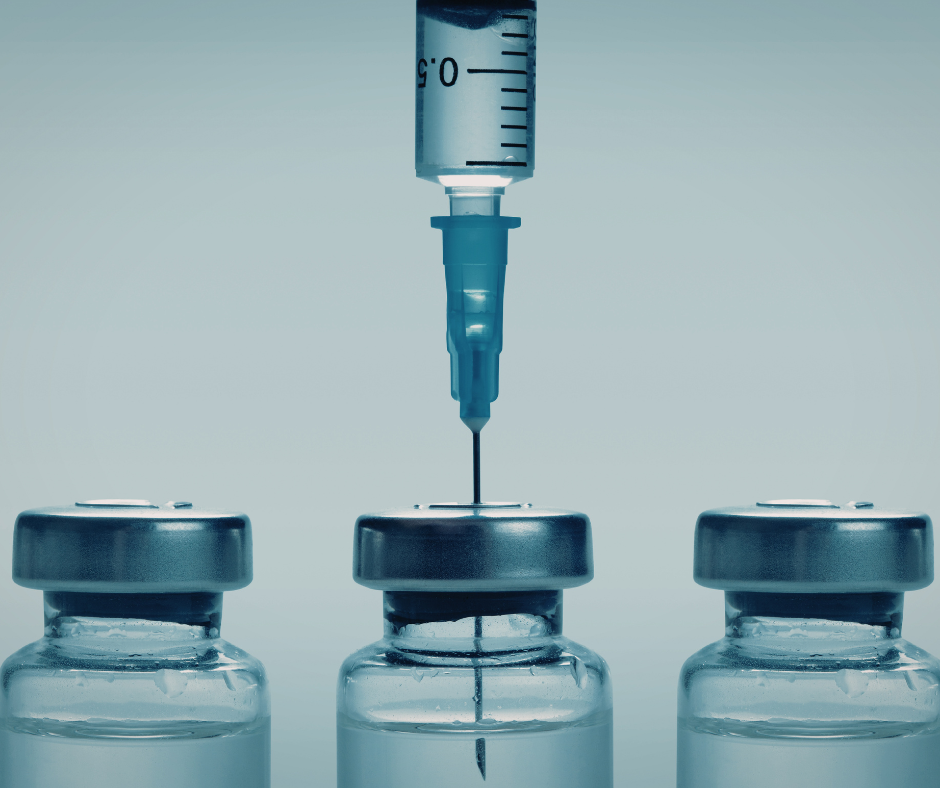Can low iron cause weight gain? The short answer is yes, iron deficiency and weight are intrinsically linked.
Like many other deficiencies, it has effects that you might not expect. However, the question you are likely to have is now “How are they linked?”
If you are struggling with unexplained weight gain yourself, you might want to know whether your iron levels might be to blame.
This article will explore the link between the body’s iron levels and weight management. As you read through, learn how addressing low iron can start to improve your health and help you lose weight. By the end, you should also understand how EVOLVE can support you in this journey.
Can Low Iron Cause Weight Gain?
Iron is an essential tool in the body’s arsenal. It is a key component of hemoglobin, a protein used to develop important cells in your bloodstream.
As you digest it, your body will use it to transport oxygen to different areas to help support metabolic processes. You will often see it in the form of red blood cells, which carry oxygen around the body after you breathe it in.
For this reason, the impact of low iron levels can include:
- Fatigue
- Difficulty producing energy
- Poorer health
Thus, keeping your iron levels high enough ensures that your body can work at peak efficiency.
How Iron Deficiency Impacts Your Body
Healthy levels of iron mean your blood can move oxygen to where it needs to be. An iron deficiency instead means you will start to develop issues in getting oxygen to where it needs to be. Some of the issues that can then crop up include issues such as the following:
Anemia: This issue is defined as fewer red blood cells and can lead to fatigue and weakness.
Impaired cognitive functions: A lack of oxygen to the brain means you are more likely to make poor decisions.
Diminished immune response: This can cause the body to be more vulnerable to illnesses.
Iron deficiency can also lead to brittle nails, hair loss, and many other visual changes. It can sometimes be easy to see in a person’s appearance, but as some of these may come from other effects, it is harder to diagnose.
The important thing, though, is that when you do not have enough iron, it can be a lot harder for your body to ensure it produces energy as it should. Iron levels and metabolism have a clear link, as iron deficiency decelerates many of the body’s processes.
When your body’s metabolism slows down, your body is likely to store more calories due to it becoming harder to turn these into energy your body can use. As such, it will instead produce fat to store this energy and cause you to gain larger amounts of weight.
Boosting iron, on the other hand, can enhance your energy levels, often allowing you to support a much more active lifestyle. This can be hard for many people, though, so it is important to look for options to help you with it.
Challenges of Weight Management With Low Iron
Low iron can snowball fast into making it much harder to maintain a low weight. There are several reasons for this.
Fatigue from low iron can make keeping up with regular exercise very difficult, as you will not feel like you have the energy for it. At the same time, a slowed metabolism means that you are likely to have increased fat stores across the body. Having this larger bodily mass can make it harder to get started with any form of movement and cause you to get tired even faster.
On top of all this, a lack of energy will often cause you to have cravings for high-calorie food, which then exacerbates the issues further. Your body will take this food and turn it into even more fat stores.
Even if you stick to the right diet, it can be both frustrating and disheartening to see your weight continue to rise. As such, addressing your iron levels is a very important step. It not only makes weight loss efforts more effective, but it also helps you invest in their efficacy.
Recognizing Common Symptoms of Low Iron
If you are wondering whether you are suffering from an iron deficiency and need to take action, consider the following symptoms.
As mentioned above, some of the most common ones are:
- Fatigue and weakness
- Brittle nails and hair
On top of these, though, you should watch out for paleness in your skin. This suggests that your body is not getting enough blood to give you a healthy glow.
You may also find you are getting winded or short of breath easily. If this impacts your ability to continue normal or daily activities, you may want to investigate. It could indicate difficulty in transporting oxygen around the body.
Dizziness or headaches are also similar symptoms, but they are more related to the brain. If your head is not getting enough oxygen, it is an important thing to resolve as soon as possible.
While many people suffer from cold hands and feet, having these in addition to all of the above can determine if your issues are iron-related.
Recognizing all the above can help you seek out timely intervention and help you stay healthy for longer. As such, try to seek out medical advice if these symptoms persist.
How to Test Your Iron Levels at Home
It is important to get tested if you suspect iron deficiency may have a role in your weight issues. This can confirm suspicions and help you on your treatment journey, but be aware that a professional can give you the best assessment.
Despite this limitation, many people also choose to test themselves at home as a first step. If you later discover you have low iron, these kits can also help you track your treatment.
Differences in How Iron Deficiency Impacts Men and Women
Due to physiological differences, men and women have some differences in how much iron they need in their bodies. Understanding these differences is important when choosing and keeping up with effective treatments.
Unique Challenges for Women’s Health
While it is not a huge amount of blood each month, menstrual blood loss is a common cause of iron deficiency in women. Women may also discover that symptoms like fatigue and hair loss are more pronounced than in men.
The hormonal changes that women go through monthly, or during pregnancy, can exacerbate the effects of iron deficiency. While weight can fluctuate naturally during these times too, low iron exacerbates this issue even further. As such, they may need a higher iron intake or need to combine iron supplements and weight management to respond to their body’s changes.
How Men Respond to Low Iron Levels
While men are less likely to suffer from iron deficiencies, they are still at risk. While these issues can relate to all people, men are culturally more likely to engage in sports and active hobbies. Thus, issues such as decreased muscle performance or energy issues are often more relevant.
As men also have a very different hormonal cycle, they are also more likely to experience much more subtle symptoms, making it harder to diagnose.
EVOLVE’s Personalized Weight Loss Programs
EVOLVE understands that every person is different when it comes to their health needs and goals. Thus, we work hard to both assess and treat everyone with a blank slate.
We can discuss your unique issues with you, working out if iron deficiency is where your problem lies. Then, if we confirm this, we can offer you dietary advice. This may include managing your iron intake to help you implement effective weight loss steps.
With support from professionals, we can help you address the root causes of your weight gain, which may include iron deficiency. If there are other issues, though, we can discuss them with you to help you get the perfect treatment.
At the same time, we respect that some people simply want a little help in reaching their weight loss goals regardless of the reason. We want to help you reach them and shed unwanted pounds.
It’s time for you to look like yourself and see the person you want to be in the mirror. EVOLVE’s personalized weight management plans can get you on the right track. These might include:
- Bioidentical Hormone Replacement Therapy
- Medication use
- Nutritional and dieting advice
- Healthcare advice during hormonal changes
We can ensure that the use of each of these is likely to be both effective and safe for each patient. Thus, you can expect results to occur with minimum hassle.
Take Control of Your Health With EVOLVE
You should now be able to answer the question, “Can low iron cause weight gain?” As discussed above, iron deficiency can have a huge impact on both your weight as well as your overall health. Addressing this is crucial in empowering your weight management.
Evolve offers personal programs and expert guidance to ensure you can achieve and maintain optimal iron levels for your body. Are you ready to take control of your weight and get back on the right track? If so, contact EVOLVE for a consultation and begin your journey back to the perfect you.






